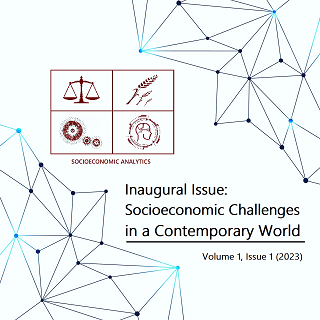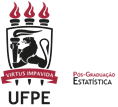A Systematic Review of “The Performance of Knowledge Organizations and Modelling Human Action”
DOI:
https://doi.org/10.51359/2965-4661.2023.258731Keywords:
systematic review, performance measurement, knowledge management, human actionAbstract
The purpose of this systematic review is to examine the performance of knowledge organizations and the role of modelling human action in improving organizational performance. Using the PRISMA scheme, a comprehensive search of relevant databases and sources was conducted to identify relevant articles. A total of 15 articles were selected based on predefined criteria, including relevance to the research question and quality assessment. The articles were analyzed and synthesized to identify key findings and trends. The findings suggest that knowledge organizations that focus on knowledge management capabilities and human resource configurations tend to perform better than those that do not. Additionally, modelling human action, such as through simulation and decision-making tools, can help organizations improve their performance by providing insights into the effects of different actions and strategies. However, the effectiveness of such models depends on their accuracy and the ability of organizations to use them effectively. Overall, this systematic review provides insights into the factors that contribute to the performance of knowledge organizations and the potential benefits of modelling human action. Future research can build on these findings by exploring additional factors that may influence organizational performance and by developing more advanced models for predicting and improving organizational outcomes.
References
Alavi, M., & Leidner, D. E. (2001). Knowledge management and knowledge management systems: Conceptual foundations and research issues. MIS quarterly, 25(1), 107-136. doi: 10.2307/3250961
Law, Kuok Kei, Andrew Chan, and Muammer Ozer. "Towards an integrated framework of intrinsic motivators, extrinsic motivators and knowledge sharing." Journal of Knowledge Management 21.6 (2017): 1486-1502. doi: 10.1108/JKM-03-2016-0119
Davenport, T. H., & Prusak, L. (1998). Working knowledge: How organizations manage what they know. Harvard Business Press. Doi: 10.1145/347634.348775
Wang, Y., & Noe, R. A. (2021). Knowledge sharing: A review and directions for future research. Human Resource Management Review, 31(4), 100751. doi: 10.1016/j.hrmr.2021.100751
Al-Hawamdeh, S. (2002). Knowledge management: Cultivating knowledge professionals. Information Today, Inc.
Jashapara, A. (2011). Knowledge management: An integrated approach. Pearson Education.
Oliveira, Mirian, et al. "Knowledge sharing, intellectual capital and organizational results in SMES: are they related?." Journal of Intellectual Capital 21.6 (2020): 893-911.
Singh, M., & Kant, R. (2015). The role of knowledge management in enhancing organizational performance. Journal of Innovation and Knowledge, 1(3), 127-134. doi: 10.1016/j.jik.2015.06.001
Abbas, M., Raja, U., Darr, W., & Bouckenooghe, D. (2020). Relationship between knowledge management practices and performance: A meta-analysis. Journal of Knowledge Management, 24(8), 1910-1939. doi: 10.1108/JKM-05-2020-0393
Lin, H. F. (2011). The impact of knowledge management on organizational innovation: An empirical study. Journal of American Academy of Business, 16(1), 257-264.
Alshawi, S., & Al-Khasawneh, A. (2016). The impact of knowledge management on organizational performance: An empirical study of Kuwait University. Journal of Enterprise Information Management, 29(2), 263-280. doi: 10.1108/JEIM-05-2015-0059
Hernandez, R., & Caldas, M. P. (2016). The effect of knowledge management on firm performance: A theoretical framework. Contaduría y Administración, 61(4), 675-692.
Yaghoubi, N. M., & Mohammadi, M. (2014). Provide a model for establishing a comprehensive knowledge management system (CKMS) in organizations. American Journal of Applied Sciences, 11(2), 360-366. doi: 10.3844/ajassp.2014.360.366
Wang, H., & Chen, J. (2022). The impact of organizational culture on knowledge management and organizational performance: A conceptual framework. Journal of Knowledge Management, 26(1), 234-253. doi: 10.1080/14778238.2022.2032434
Singh, R. K., & Singh, H. K. (2017). Knowledge management and organizational performance: A literature review. Munich Personal RePEc Archive, Paper No. 83089
Wickramasinghe, V., & Widyaratne, R. (2014). An integrated knowledge management capabilities framework for assessing organizational performance. Journal of Knowledge Management, 18(4), 643-662. doi: 10.1108/JKM-06-2013-0216
Jääskeläinen, A. and Laihonen, H. (2013), "Overcoming the specific performance measurement challenges of knowledge‐intensive organizations", International Journal of Productivity and Performance Management, Vol. 62 No. 4, pp. 350-363. https://doi.org/10.1108/17410401311329607
Medina, R. and Medina, A. (2015), "The competence loop: Competence management in knowledge-intensive, project-intensive organizations ", International Journal of Managing Projects in Business, Vol. 8 No. 2, pp. 279-299. https://doi.org/10.1108/IJMPB-09-2014-0061
Palacios-Marques, D., Gil-Pechuán, I. & Lim, S. Improving human capital through knowledge management practices in knowledge-intensive business services. Serv Bus 5, 99–112 (2011). https://doi.org/10.1007/s11628-011-0104-z
Andreeva, T. and Kianto, A. (2012), "Does knowledge management really matter? Linking knowledge management practices, competitiveness and economic performance", Journal of Knowledge Management, Vol. 16 No. 4, pp. 617-636. https://doi.org/10.1108/13673271211246185
Iqbal, Amjad & Latif, Fawad & Marimon, Frederic & Sahibzada, Umar & Rahim, Saddam. (2018). From knowledge management to organizational performance: Modelling the mediating role of innovation and intellectual capital in higher education. Journal of Enterprise Information Management. 32. 10.1108/JEIM-04-2018-0083.
Yousaf, Zahid. (2021). An integrative framework of innovative work behavior for employees in SMEs linking knowledge sharing, functional flexibility and psychological empowerment. European Journal of Innovation Management.
Hussinki, Henri. (2016). Review of empirical research on knowledge management practices and firm performance. Journal of Knowledge Management. 20. 230-257. 10.1108/JKM-09-2015-0336.
Scott, K. S. (2017). An Integrative Framework for Problem-Based Learning and Action Learning: Promoting Evidence-Based Design and Evaluation in Leadership Development. Human Resource Development Review, 16(1), 3–34. https://doi.org/10.1177/1534484317693090
Abubakar, A. M., et al. "Knowledge management, decision-making style and organizational performance. J Innov Knowl 4 (2): 104–114." (2019).
Anantatmula, Vittal Sree Panduranga. Criteria for measuring knowledge management efforts in organizations. The George Washington University, 2004.
Zack, M.H., McKeen, J.D., & Singh, S. (2001). Knowledge Management and Organizational Performance: An Exploratory Analysis. Journal of Management, 27(6), 1239-1254.
Dignum, V., & Dignum, F. (2011). Modeling Human Action in Knowledge Organizations. Journal of Knowledge Management, 15(3), 516-536. doi: 10.1108/13673271111133159
Alrawi, K. M., Alrawi, M. M., & Alrawi, N. A. (2019). The Impact of Knowledge Management on Organizational Performance: A Theoretical Model and Empirical Study. International Journal of Knowledge Management Studies, 10(1), 1-20. doi: 10.1504/IJKMS.2019.10020685
Choi, B., & Lee, H. (2003). Knowledge Management and Organizational Performance: A Review and Research Agenda. International Journal of Management Reviews, 5-6(3-4), 299-319. doi: 10.1111/1468-2370.00088
Alavi, M., Leidner, D. E., & Kayworth, T. (2009). A Dynamic Model of Human and Organizational Factors in Knowledge Management Systems Success. AMCIS 2009 Proceedings, 388.
Goodwin, Charles. (2012). The Co-Operative, Transformative Organization of Human Action and Knowledge. Journal (Academy of Hospital Administration (India)). 46. 8-23. 10.1145/2388676.2388678.
Soumyaja, D., & Sowmya, C.S. (2020). Knowledge management and innovation performance in knowledge intensive organisations - the role of HR practices. International Journal of Knowledge Management Studies, pp. 370-392. https://doi.org/10.1504/IJKMS.2020.110668
Henttonen, Kaisa & Kianto, Aino & Ritala, Paavo. (2016). Knowledge sharing and individual work performance: an empirical study of a public sector organisation. Journal of Knowledge Management. 20. 749-768. 10.1108/JKM-10-2015-0414.
Monteiro, S. & Cardoso, L.. (2008). The impact of human resources management on knowledge management processes in industrial organizations. 535-544.
Navimipour, N. J., & Charband, Y. (2016). Knowledge sharing mechanisms and techniques in project teams: Literature review, classification, and current trends. Computers in Human Behavior, 62, 730-742.
Kwahk, K. Y., & Park, D. H. (2016). The effects of network sharing on knowledge-sharing activities and job performance in enterprise social media environments. Computers in Human Behavior, 55, 826-839.
Safa, N. S., & Von Solms, R. (2016). An information security knowledge sharing model in organizations. Computers in Human Behavior, 57, 442-451.
Amar, A. D., & Hlupic, V. (2016). Leadership for knowledge organizations. European Journal of Innovation Management.
Lin, C. P., Wang, Y. J., Tsai, Y. H., & Hsu, Y. F. (2010). Perceived job effectiveness in coopetition: A survey of virtual teams within business organizations. Computers in Human Behavior, 26(6), 1598-1606.
Downloads
Additional Files
Published
Issue
Section
License
Copyright (c) 2023 Begaiym Satarova, Tuba Siddiqui, Hassan Raza, Navid Abbasi, Sultan Kydyrkozha

This work is licensed under a Creative Commons Attribution-NonCommercial-NoDerivatives 4.0 International License.
Authors who publish with Socioeconomic Analytics retain the copyright of their work and agree to license it under a Creative Commons Attribution-NonCommercial-NoDerivatives 4.0 International (CC BY-NC-ND 4.0) license. This means that the work can be shared, copied, and redistributed in any medium or format, as long as it is not used for commercial purposes, and the original work is properly cited. The work cannot be changed in any way or used to create derivative works.










